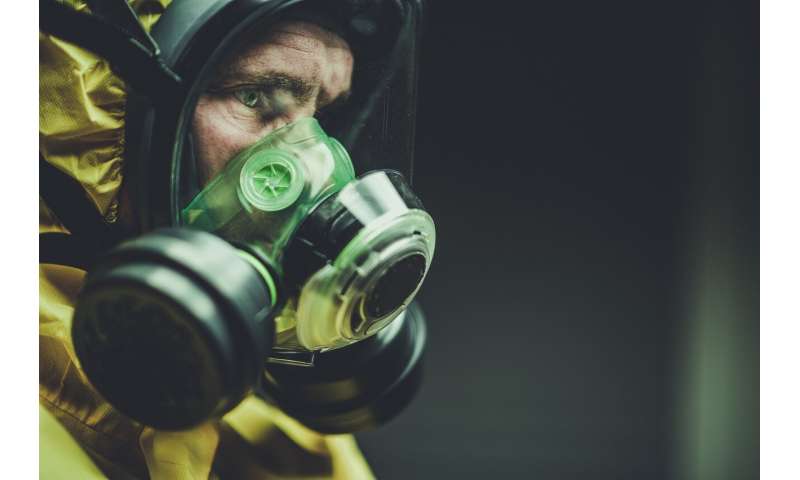
COVID-19 healthcare workers will be psychologically impacted by their work during the pandemic and will require psychological support from multiple levels in their organisations, according to an academic review by researchers from Queen Mary University of London, London’s Air Ambulance and Barts Health NHS Trust, and a London-based A&E doctor.
Published in the European Heart Journal, the review paper looks at the psychological wellbeing of medical staff, and includes pragmatic recommendations for individuals, teams and organisational leaders in the COVID-19 pandemic.
The paper highlights the increased pressure staff are under, while having to deal with fears of catching the illness themselves or passing it on to their families, working with new and frequently changing protocols, and caring for very sick and quickly deteriorating patients—all of which can result in acute stress reactions, burnout, depression, anxiety, post traumatic stress disorder and ‘moral injury’.
The authors argue that during the COVID-19 pandemic there are many opportunities to support staff. The paper is structured as a guide and has easy to read sections and tables so that individuals can focus on the section most relevant to them. The paper will be useful for any individual involved in the front line healthcare response.
Special circumstances such as staff being quarantined and returning to work are covered, including guidance on how organisations can provide tangible support and address any pre-existing stressors. Advice on crisis leadership and how to support distressed colleagues is detailed, including self-care.
Dr. Mike Christian, Research & Clinical Effectiveness Lead, HEMS Doctor, London’s Air Ambulance, Barts Health NHS Trust, said: “Leadership during a crisis is always a challenge, however, leading during the COVID-19 situation is even more difficult given that leaders themselves are ‘living’ in the crisis and equally impacted by it as much as those who they are leading. Although there are many negative aspects of the current situation, teams can grow stronger, individuals can develop, relationships can grow deeper as a result of this crisis. The impact of this pandemic and how leaders respond during it will shape the future relationship of teams and culture of organizations for years to come.”
Dr. Matt Walton, London-based A&E doctor, added: “Psychological support for frontline staff is a critical part of the public health response, I hope our paper can be useful for all those who need guidance in providing that support.”
In the paper, emerging concepts such as ‘moral injury’ (originally from work with military veterans) are applied to frontline staff. Moral injury describes the psychological impact of bearing witness to unacceptable things or making decisions that contravene the morals of the individual making them, resulting in severe guilt and shame. For example, following new protocols about which patients will not receive life support if there are resource scarcities.
Source: Read Full Article